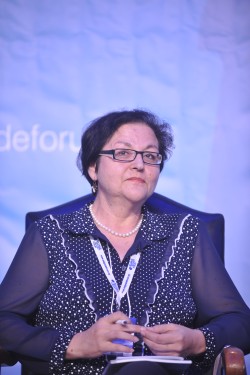Session 3: Where Is the New Phase of the Belgrade-Pristina Dialogue Taking Us? (In Partnership with the Council for Inclusive Governance-CIG)
Discussion Points:
- The dialogue has been in a limbo since 2016. Is the Brussels dialogue alive? Can different results be achieved while the facilitator and the sides are employing the same tools they have employed for eight years? If the tools are different now, what are these new tools?
- A comprehensive agreement is too vague of a formula to act as a clear vision for the process. One needs to know clearly what the goal is. What is the vision of the dialogue? What is the goal? Do Belgrade, Pristina, and Brussels share this vision?
- The dialogue and its successes have been closely linked to the EU perspectives for both Serbia and Kosovo. With the recent statements in the EU about the lack of interest for enlargement any time soon, no change of mind of the five EU member states that do not recognize Kosovo’s independence, and the growing pessimism on the EU in Kosovo and in Serbia has the EU perspective seized being a powerful incentive? If this is the case, what is the new engine moving the normalization forward? If this is not the case, what are EU’s sticks and carrots in the normalization process?
- Can there be a successful normalization process while the sides continue to engage in heated rhetoric aimed at each other and even actions? How can EU go on while allowing incessant destabilizing actions and the toxic public atmosphere about the dialogue?
- It is clear that for many economic, social, and political reasons Serbia cannot go on for too long without resolving the Kosovo issue. How long can Serbia wait?
- Can the Serbian government successfully reach a normalization deal with Pristina while facing growing objections by the Serbian Orthodox Church and a new alliance of opposition parties?
- Does the lack of consensus in Pristina present a handicap for a successful and legitimate process in Brussels?
- Why so many consider ideas of a partition or an exchange of territories extremely dangerous? Or is this the only way to resolve the issue once and for all? If a partition or an exchange of territories are Plan A, what is Plan B?
- What are the main challenges in the process that have to be dealt with immediately? How?
- Is there a realistic possibility that the dialogue might fail? What will happen if it fails?
- What is the way forward toward a successful process and full normalization?
Background:
The dialogue on normalization of relations between Belgrade and Pristina facilitated by the EU is in its eighth year. Launched as a technical process devoted to the issues of the rule of law, freedom of movement, regional cooperation, etc. the dialogue was soon transformed into a political process. The parties in the dialogue have reached several important agreements but their implementation has been uneven at best.
The dialogue has been stagnating since the end of 2016. 2017 and 2018 were lost to normalization. It has been more than a year now since EU’s High Representative for Common Foreign and Security Policy, who has been facilitating the dialogue, announced a new phase that will produce a “qualitative leap” in the normalization process. Participants in the dialogue labeled this new phase as “historic”, “final”, “momentous”, or “ultimate”. The process is to conclude with signing of a legally binding comprehensive agreement. However, the nature of the agreement and the solution for the Kosovo dispute are not any clearer now than they were eight years ago. In fact, Pristina and Belgrade continue to engage in the dialogue for totally opposite reasons and the relationship seems to have deteriorated since the announcement of the new phase. More questions than answers remain.
Selected Readings:
- Assessing Options of Serbia’s Internal Dialogue
- Parliaments and Normalization
- Outcomes of Serbia’s Internal Dialogue and Prospects for a Comprehensive Normalization
- Serbia’s Internal Dialogue on Kosovo and EU Integration
- Serb-Albanian Relations and Kosovo Status Dispute. A Focus Group
Previous BSF Sessions on Similar Topics:
2017 – Belgrade-Pristina Dialogue: From Normalization Towards Normality
2016 – Session 2. The Belgrade Pristina Dialogue and the EU Future
2015 – Session 1. Kosovo and Serbia: How Much Longer before Normality?
2014 – Evening panel: Serbs and Albanians in 2025 as Friends and Allies: How do we get there?
2013 – Session 9: Serbia and Kosovo: a Game Changer in the Balkans?
2012 – Session 4: Crisis and Opportunity: An Unfinished Peace in Kosovo






